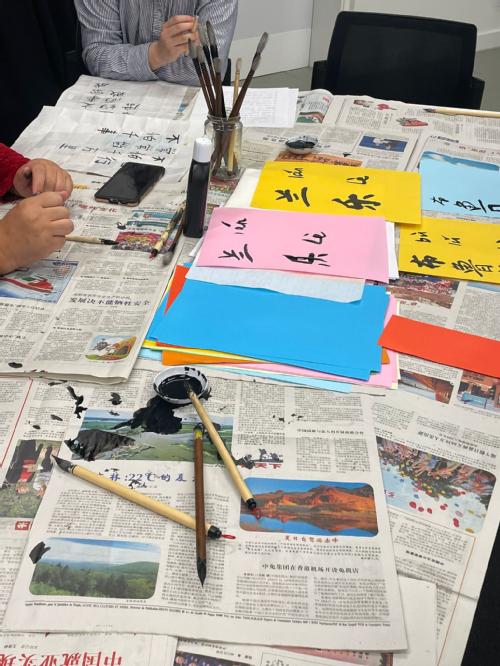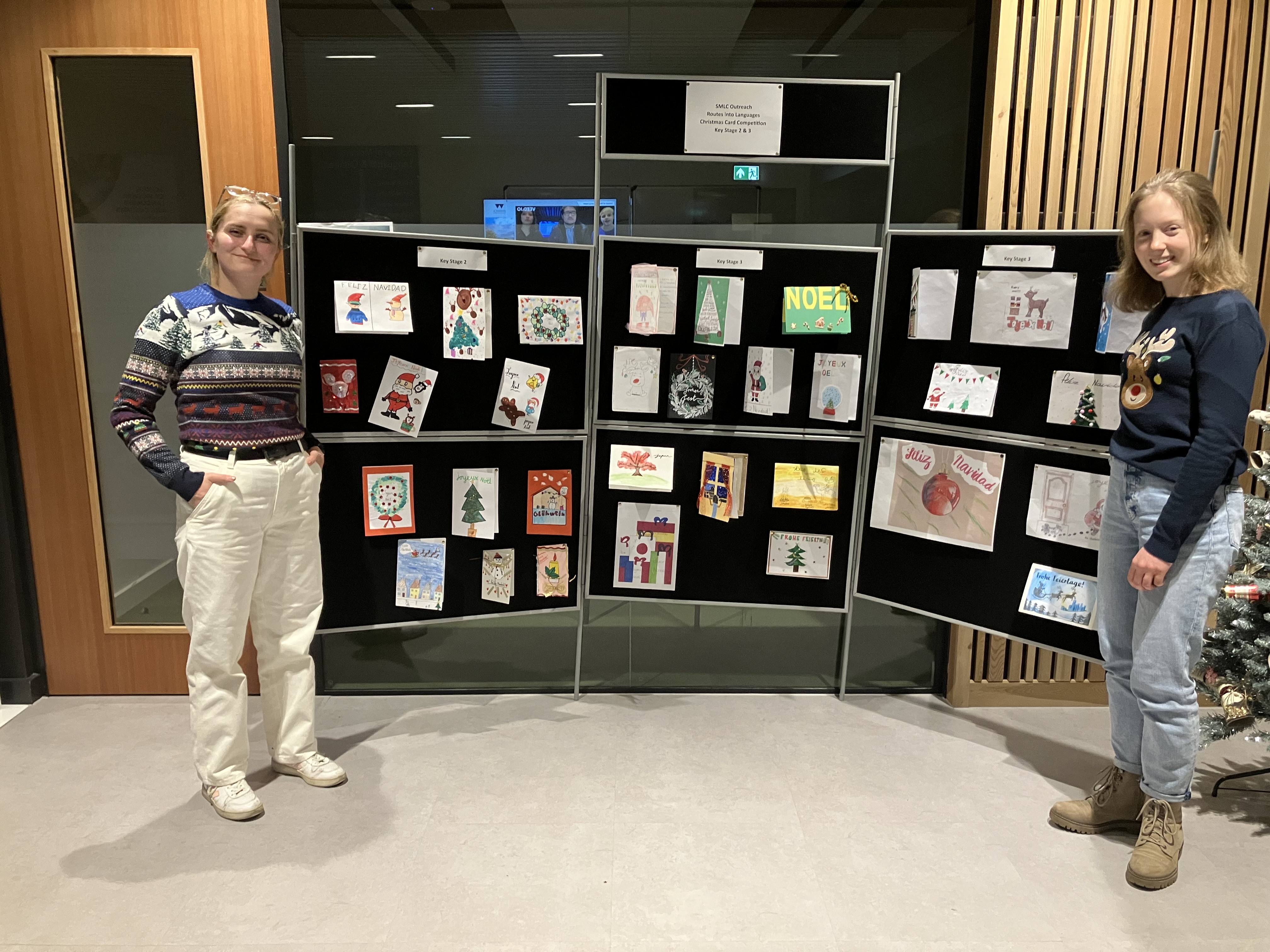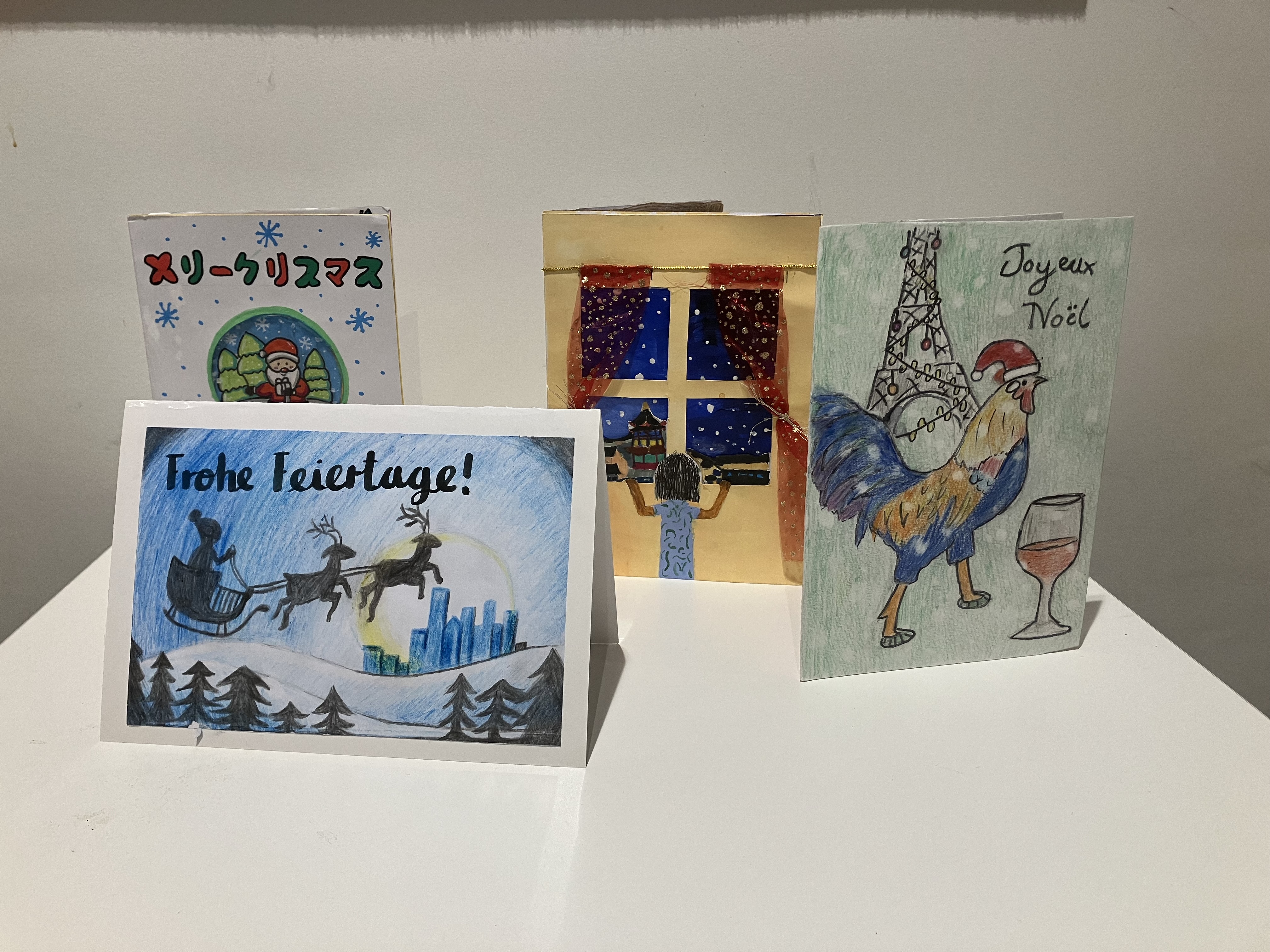Arts Faculty News
Arts Inclusive Education Conference 2024
On Tuesday 21 May, we brought together staff and student members of our community for the Inclusive Education in the Arts Conference 2024! Our 20 presenters – both those in the room, and asynchronous video presenters – showcased those areas where the Faculty is leading in inclusive education, highlighting more examples of positive inclusive practice in the Arts and asking where we can go next.
Faculty of Arts UG Module Fair 30th April
The Arts Faculty is holding an undergraduate elective choice module fair on Tuesday, 30th April 2024 from 13.00 – 16.00 in the FAB on the ground floor and on the mezzanine.
The fair is aimed at first year and second year UG students choosing their elective modules for the following year.
Representatives will be present from across our Arts departments and disciplines: Classics & Ancient History, Cultural Media Policy Studies, Design Studies, English & Comparative Literary Studies, Film & Television Studies, Global Sustainable Development, History, History of Art, Liberal Arts, Modern Languages and the Language Centre, Theatre and Performance Studies, Warwick Writing Programme.
Also present will be representatives from IATL, WIISP, Warwick Business School’s Gateway to Business, School of Law, SELCs – Teaching Education and Education Studies, Warwick Award, Student Opportunity plus the Arts Study Café and the Digital Arts and Humanities Lab.
Why Hot Cross Buns at Easter?
The tradition of eating hot cross buns as we know them dates back to the 18th century, according to English HeritageLink opens in a new window. It has been suggested that the St Alban’s Bun, a cake local to St Alban’s, was the "ancient prototype" for the hot cross bun.
These buns are flavoured with "grains of paradise", sometimes known as Meleguata pepper and closely related to cardamom, and a cross was slashed into the dough rather than piped on.
Some historians say that bakers who marked their loaves with crosses believed it would ensure the bread rose successfully and would ward off evil spirits.
Later, it was believed that hanging loaves and buns marked with crosses that were baked on Good Friday would provide protection against evil spirits. These miraculous loaves were also believed to never mould and would last all year long until the next Good Friday came along, when they would be replaced.
The hot cross bun’s links to religion have always been quite clear - even if they haven’t always been welcome. Professor Rebecca Earle, food historian at the University of Warwick, tells Yahoo UK: "I don’t think there’s any ambiguity about hot cross buns being associated with Good Friday and therefore, Easter.
School of Modern Languages Christmas Card Competition
The School of Modern Languages and Cultures organised a Christmas Card Competition for schools and delighted to share some of their entries. Orla Whelan-Davis, Widening Participation Officer, has shared the following:
'We organised a modern foreign languages schools Christmas Card Competition in the month of December as part of our Routes Into Languages initiative. We were thrilled to receive huge amounts of entries from pupils in key stages 2 and 3 showcasing their artistic, creative and language skills. We were able to create a display by our SMLC office of many of the entries which came in 11 different languages! It really put a smile on everyone’s faces, staff and students alike. The worthy winners received personal letters of congratulations and a voucher as their prizes. Some photos attached of the display and the winning cards in each key stage.'
Faculty of Arts Easter Programme - Venice - Funding Opportunities
An exclusive fully funded opportunity for 10 first year widening participation students from the Faculty of Arts to take part in an exciting pilot programme in Venice, Italy during Easter vacation 2024.
This will be an interdisciplinary programme led by academics from the Faculty of Arts to consider Resilience in Venice - past, present and future.
Information session: There will be an online MS Teams drop in information session Link opens in a new windowLink opens in a new windowtaking place on Wednesday 29 November 2023 between 15:00-16:00. There will be a short presentation which will be recorded. This is an opportunity for students to ask questions and find out more.
The Warwick Prize for Women in Translation Announces the 2023 Shortlist
Eight titles have been shortlisted for the 2023 Warwick Prize for Women in Translation.
The £1000 prize was established by the University of Warwick in 2017 to address the gender imbalance in translated literature and to increase the number of international women’s voices accessible by a British and Irish readership. Now in its seventh year, the prize has received a record-breaking 153 eligible entries representing 32 languages – the largest number of submissions to date.
Spooky Times: Warwick Festival of the Gothic
Warwick Festival of the Gothic
Monday 30th October - Friday 3rd November 2023.
Join us for a programme of free workshops, lectures and panels, readings, performances, screenings, exhibitions, and interactive games that reflect the wealth of research and teaching on the Gothic and Horror by staff and students across the Faculty of Arts.
A programme is available below. All events take place in the Faculty of Arts Building.
From Front Lines to Film Sets
With nearly a decade in the British Army including tours of Bosnia, Kosovo and Afghanistan before coming to Warwick, Lee Kemp (Film with Television Studies, 2007) had an unusual path to his degree. But it was a simple truth that made his decision.
Now available: Arts Faculty Inclusive Education Report 2023
“Inclusive education is at the heart of everything we do in the Faculty of Arts. We have some excellent practice to share and creative ways of moving forward in partnership with staff and students." Sarah Richardson, Chair of the Faculty Education Committee & Deputy Chair of the Faculty of Arts
University of Warwick welcomes schools for FABFest 2023
FABFestLink opens in a new window took place on Wednesday 28th June, welcoming over sixty pupils from five Coventry and Warwickshire secondary schools to the Faculty of Arts Building. The day was targeted at Year 8 students (aged 12 to 13 years old), with the aim of allowing students to experience and explore a range of subjects and to inspire students to think about future subject choices in the Arts and Humanities.
Etone College, one of the schools that attended has shared a fantastic blog describing their experiences of attending: https://www.etonecollege.co.uk/university-of-warwick-fabfest/



